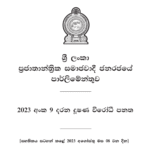Auditing is a professional service where an auditor examines the financial accounts of a business entity to form and express an opinion on their accuracy, truth, and fairness. This process results in an audit report, a critical document that establishes legal relationships between various parties. The role of an auditor is governed by professional ethics and responsibilities, requiring adherence to high standards of care and diligence.
In Sri Lanka, auditor liability is governed by Roman-Dutch law, as there is no specific legislation defining their responsibilities. This article explores the concept of delict (a civil wrong), auditor negligence, fraud, and the legal framework for auditor liability under Roman-Dutch law.
Parties Affected by Incorrect Audit Reports
An incorrect audit report, whether due to negligence or fraud, can adversely impact multiple parties:
- Primary Clients:
- The company or individual hiring the auditor.
- Current directors and shareholders of the company who rely on the report for decision-making.
- Third Parties:
- Potential investors assessing the company’s financial health.
- Creditors providing loans based on the company’s financial position.
- Debenture holders and other financiers who use the report to gauge the company’s stability.
- Entities making a takeover bid or acquisition decision.
Incorrect audit reports can lead to significant financial losses for these groups, emphasizing the importance of auditor accountability.
The Law of Delict and Negligence
Delict Defined
A delict is a civil wrong that arises when a general duty imposed by law is breached, causing harm to another party. It differs from contractual and criminal wrongs. Under Roman-Dutch law, two primary types of delicts govern liability:
- Damnum Injuria Datum (Aquilian Action):
- Covers harm caused to a person or property through negligence (culpa) or malicious intent (dolus).
- Applicable when there is patrimonial (financial) loss.
- Actio Injuriarum:
- Protects against harm to personal reputation or dignity caused intentionally.
Negligence Explained
Negligence occurs when a person fails to meet the standards of care expected in a given situation. For professionals like auditors, negligence is judged against the standard of a reasonably skilled and competent practitioner. This principle applies to any professional service requiring specialized knowledge or skill.
Fraud Defined
Fraud involves intentional deception through false statements to cause harm or achieve unlawful gains. An auditor commits fraud if they knowingly issue a false audit report intending to mislead others.
Auditor Liability Under Roman-Dutch Law
Roman-Dutch law distinguishes between liability for negligence and liability for fraud:
- Liability for Negligence:
- An auditor is not liable under Roman-Dutch law for financial loss caused by a negligently prepared audit report unless there is physical injury or intentional harm.
- Negligent misstatements, even if they cause patrimonial loss, do not fall under the scope of actionable delicts unless they were intended to harm.
- Liability for Fraud:
- Fraudulent conduct by an auditor is actionable if it can be proven that:
a. The auditor intended to cause financial harm.
b. The harmed party suffered patrimonial loss as a direct result.
c. A legal nexus (connection) exists between the auditor and the harmed party.
- Fraudulent conduct by an auditor is actionable if it can be proven that:
Adapting Roman-Dutch Law in Sri Lanka
Sri Lankan courts are empowered to adapt Roman-Dutch principles to modern conditions but cannot introduce entirely new causes of action or expand existing ones.
- Adapting Law: For example, courts have interpreted “corn” in Roman-Dutch servitude laws to include paddy, reflecting Sri Lanka’s agricultural context.
- Limits to Development: Courts cannot introduce new torts (e.g., conversion) or expand existing actions like Lex Aquilia to include emotional damages or loss of companionship.
Auditor Liability in Other Jurisdictions
In South Africa, courts have extended Roman-Dutch law to recognize liability for negligent misstatements, even when no physical harm occurs. This development was influenced by English law, notably:
- Hedley Byrne & Co. Ltd. v. Heller and Partners Ltd.: A case that established liability for negligent misstatements causing economic loss.
By contrast, Sri Lankan courts require legislative action to introduce similar liability provisions.
Recommendations for Reform
To enhance auditor accountability and protect stakeholders, the following measures are recommended:
- Legislation on Auditor Liability:
- Define circumstances under which auditors can be held liable for negligence and fraud.
- Align laws with international best practices, ensuring auditors are accountable for financial harm caused by their reports.
- Clarifying Liability Standards:
- Clearly specify the professional standards expected of auditors.
- Provide guidance on the extent of their responsibilities to third parties.
- Public Confidence:
- Introduce penalties for negligence to reinforce public trust in the auditing profession.
- Ensure that affected parties can seek adequate remedies for financial harm.
Conclusion
The current framework under Roman-Dutch law limits auditor liability for negligence but allows liability for fraudulent reports with proven intent to harm. Given the evolving complexity of financial markets and the critical role of auditors, legislative reforms are essential to ensure accountability. By modernizing laws to address negligence, Sri Lanka can inspire confidence in the auditing profession and provide better protection to stakeholders relying on audit reports.














